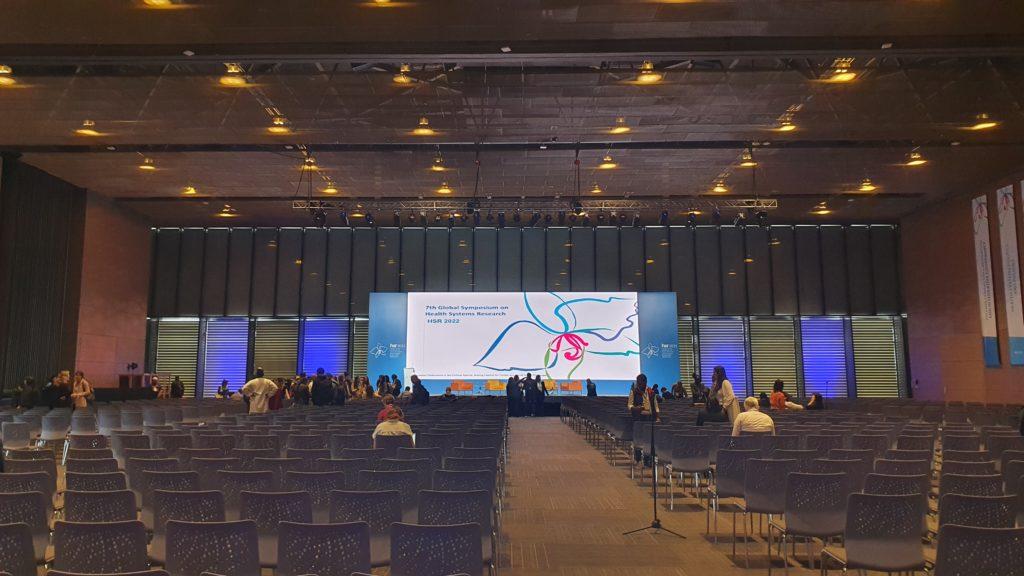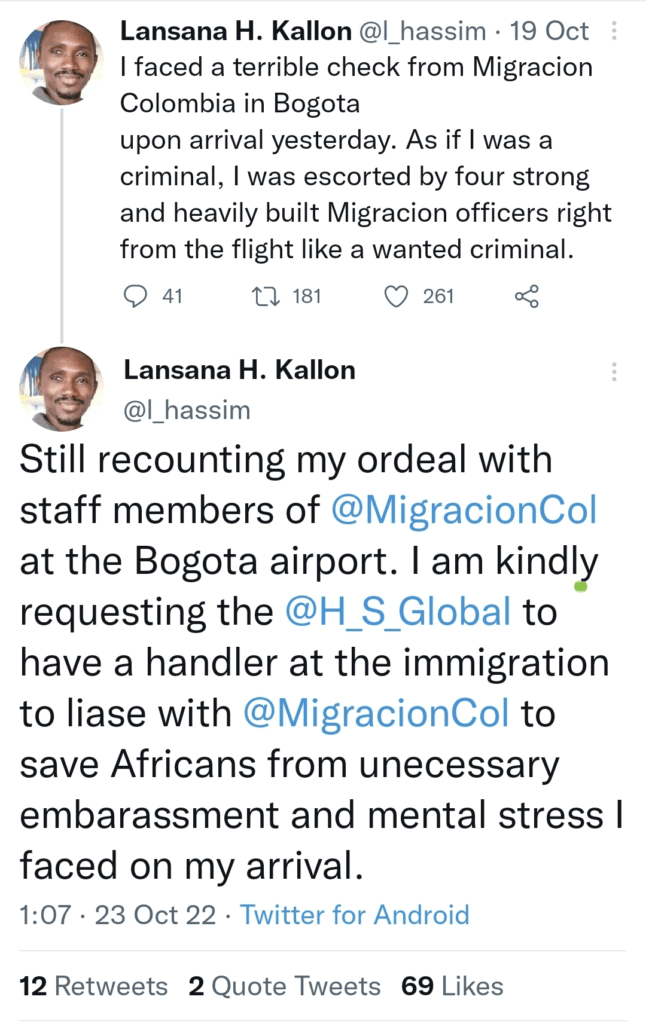
Global health is an area that requires cross collaboration between parties of varying expertise across different geographical locations. As such, these collaborations rely on strong collaboration between global South and global North partners. However, the majority of the in-person events, for example meetings, conferences and trainings take place in the global North. This necessitates that global health professionals and trainees in the global South travel.
Global health is only truly global if all voices are at the table. Global health is a broad area that has been described in the Lancet as an area for study, research, and practice that places a priority on improving health and achieving equity in health for all people worldwide. With that background, global health involves a variety of activities that in most cases are carried out across countries. This means that parties in countries that are well off (the global North or high-income countries) must work hand in hand with parties in countries that are not well off (global South or low- and middle-income countries (LMICs)) to achieve the objectives of global health. For example, through leveraging synergies to tackle transnational health challenges. Over time therefore, global health has facilitated the increased formation and development of collaborations and alliances between global South and North parties.
However, travel has become a significant challenge. Currently there are increasing incidences of global health professionals from the global South being denied visas and humiliated at border points of entry into global North countries, when invited for international global health events. This was experienced during recent international global health events such as the 24th International AIDS Conference, the latest World Health Summit and most recently the 7th Symposium on Health System Research (HSR2022).
A number of global health professionals have cited existence of inequitable power relations among North–South collaborations that disadvantage global South professionals and the population in the global South at large. At HSR2022, held in Bogota, Colombia, it was expected that potential attendees wouldn’t face visa challenges as this was one of the reasons why the country was selected in the first place to host the event. Unfortunately, there were numerous reports where global health professionals from LMIC settings were denied visas to Colombia, for example practitioners from African Medical and Research Foundation (AMREF) & Kenya Medical Research Institute (KEMRI). Some participants (with visas) also experienced trouble at the border.

If we don’t have all voices at the table, then it is not ‘global’. Advocacy for a truly global nature of the symposium resulted into the development and submission of an important petition from Health Systems Global (HSG) members from Africa to the HSG general assembly, requesting for the matter to be considered and resolved in the future symposia. The suggested resolution included pausing of the 2024 symposium until the HSG secretariat has addressed country specific visa requirements; having 2-3 LMIC representatives on the organizing committees of the symposia (it is not a ‘global’ conference unless representative voices are part of the steering committee); in addition, the HSG secretariat should furnish the Ministry of Foreign Affairs of the host country with a list of attendees ahead of visa applications; and the HSR secretariat should liaise with the local organizing committee to navigate potential visa obstacles ahead of the symposium.
As we call for equal treatment, these incidents among others speak to the wider advocacy concept and discussion of “Decolonizing Global Health”. If we do not address the existing and ingrained power imbalance between the global North and South, researchers have warned that this will entrench inequitable relationships which can be observed through the unfair distributions of power, resources and wealth between the North and South. For global health this means, continuing structural barriers to participation excluding valuable partners or collaborators at an equitable table.
Further measures to be taken
In addition to the suggestions by a number of African HSG members (in the resolution mentioned above), below is my attempt at further potential measures that may contribute to rebalancing the inequity with regards to travel restrictions faced by global health professionals from the South. I propose sensitization of visa and border control officers in the global North, relocation of meetings to the global South, promotion of south-to-south collaboration and early visa application as potential remedies to the current injustice.
Sensitization of visa, passport/border control officers in the global North
There should be comprehensive and routine sensitization of visa officers and border control officers. The officers should be given routine information about the planned global/international events to aid their decisions on visa applications and entry into global North countries by global health professionals. Furthermore, there is a need to increase transparency by starting an open access database with statistics of the number of participants turned away despite having necessary visas.
Hosting meetings in the global South or global North countries with minimal travel restrictions
Where the meetings/events have to be in person, it is desired that such meetings take place in countries whose visa and travel restrictions do not place an undue burden on travelling attendees. In most cases, it is the global South countries that encourage free movement of professionals compared to most global North countries.
Early visa applications
The organizing committees of international events should furnish the potential attendees (global health professionals) with comprehensive and early information regarding travel and visa application processes, and where necessary, move forward their timelines (re calls, selecting fellows,… ) to allow for timely visa applications. In turn, global health professionals should ensure that they submit their visa applications early enough at least 3-4 months before planned travel dates, where possible.
This article sheds great insight to an important 21st Century issue. Indeed, senstizing border control staff about events is important. The inequity in “global health” is rather disturbing and actions/scrutiny of openess and justice for countries hosting global health events is very important